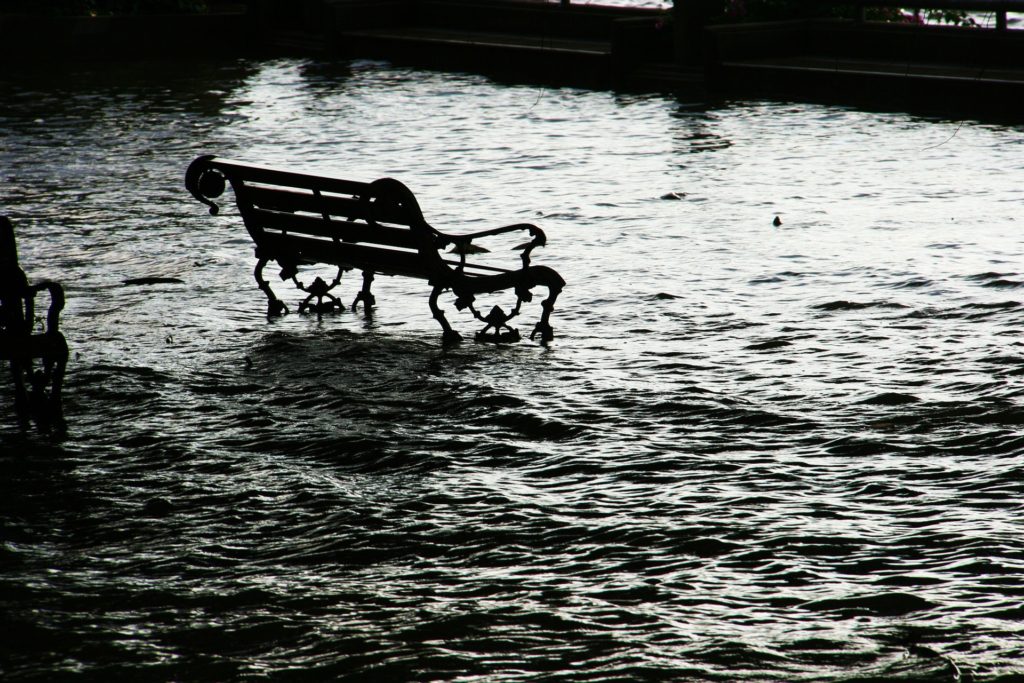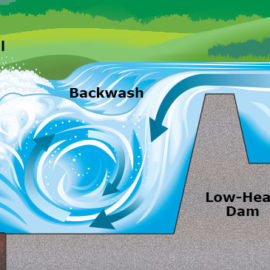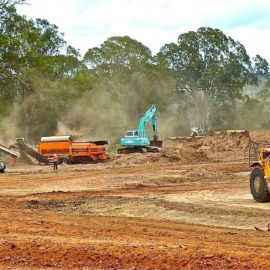
Baton Rouge, like us, does not need this but they are much closer to more protection. The Comite River Diversion Canal has almost been cleared.
A roadblock to a massive flood prevention project for the Baton Rouge area could soon be cleared: State highway officials said Wednesday they reached a tentative deal to relocate a gas pipeline that has been in the way. But officials didn’t say whether the new agreement ensures the U.S. Army Corps of Engineers project would meet its construction deadline at the end of 2022. State and local leaders have said the Comite River Diversion Canal — which will slice through 12 miles between Baker and Zachary to tie the Comite to the Mississippi River — would reduce the risk of flooding for thousands of homes.
theadvocate.com
This project dates back decades and now it looks possible.
Talked about since the 1960s, the project took conceptual form after the historic 1983 flood. And it gained new momentum after the 2016 deluge, which project backers say could have been lessened if the canal had existed. After years of delays, construction on the canal began in early 2020. Though the canal is being built in segments so slowdowns on one piece doesn’t necessarily effect others, the work has still hit some snags. It was originally set to be completed by 2021, but the date had to be pushed back to the end of this year — a deadline some officials are now skeptical will be met. The canal’s planned path would disrupt bayous, highways, railroads and more than 60 underground pipelines. One of them, a natural gas pipeline owned by the Florida Gas Transmission Co., has proved a particularly thorny problem: the company has sought tens of millions of dollars to either relocate it or protect it from the canal’s construction.
Pipelines! They are an impediment to wind turbines in the Gulf and now to this flood project.
In a newsletter to constituents a few days ago, before the new deal was announced, U.S. Rep. Garret Graves, R-Baton Rouge, said the dispute had gone on long enough that he didn’t expect the canal would be completed by year’s end. His newsletter identified five construction phases that were three to 10 months behind schedule because of the pipeline spat. Two others were also tied to resolution of the dispute. On Wednesday, Graves wasn’t ready to say what the deal would mean for the construction timeline. “This is certainly a big step in the right direction, but let’s be clear: We’re not in the end zone right now,” Graves said. “This model’s going to have to prove workable.”
The Corps is working on a framework with this pipeline as it is not the only one in the path.
On Wednesday, state officials said the deal they cut with Florida Gas only affected one part of the pipeline relocation — the pipeline crosses the canal at several points — but believe it provides a “framework” for future negotiations with the company. DOTD officials added in a statement Wednesday that talks with Florida Gas “have been ongoing for some time and have been more difficult than anyone expected or desired.” DOTD Secretary Shawn Wilson did sign an agreement with the company to relocate one piece of the pipeline where the canal is expected to cross under La. 964. “Florida Gas engineers presented plans that have been accepted and are included in this first agreement,” DOTD officials said in the statement. “The department believes we have the framework for future agreements to relocate other portions of the pipeline that must be moved to complete the diversion project. Those agreements will proceed when we receive (Florida Gas) plans to include in the agreement.”
My question is that why is this problem coming up as the route was set, it was checked and now the discover the pipelines?
Graves faulted officials for not anticipating the problems with Florida Gas far sooner, given the years spent on the diversion. But he explained that the slowdown also partly stemmed from the split-up nature of the project. While the Corps of Engineers ultimately pays for the relocation, DOTD has been handling negotiations with Florida Gas. Florida Gas has argued to DOTD that the company can’t say exactly how much the work will cost until it is done but had wanted a commitment the costs would be paid before work started, Graves explained. That had left DOTD in a tough spot, being asked to commit to less-than-certain relocation costs that the Corps of Engineers might not agree to pay. “And so everybody has been sitting around, pointing at each other in this triangle now for months and months,” Graves said. “And every day this has not moved, it has delayed the project a day.”
Why is not the Corps doing the negotiations? Graves is right that DOTD is not privy to all the numbers and they don’t speak for the Corps on costs.
The new deal is basically a baby step, starting with one of the smallest sections of the canal and an agreement that the Corps of Engineers will cover reasonable costs. “Once (Florida Gas officials) submit invoices and, ultimately, see what the Corps of Engineers covers, as long as Florida Gas determines, ‘Yeah this is reasonable,’ they’ll go ahead and do the next component,” Graves said. DOTD and Corps of Engineers officials did not say if the deal meant the project would meet the year-end deadline. “At this time, it is still too early to know how the final schedule will be affected,” said Ricky Boyett, Corps of Engineers spokesman in New Orleans. But he called the DOTD announcement “very good news for the Comite River Diversion.” Boyett said the federal agency will evaluate the impact of the relocation plan and proposed timeline to see if the Corps of Engineers must modify its “existing designs.” Florida Gas officials declined to comment Wednesday.
I am sure things will work out and the diversion built. Flooding from rivers can be worse than from the Gulf and lake but all are bad.



